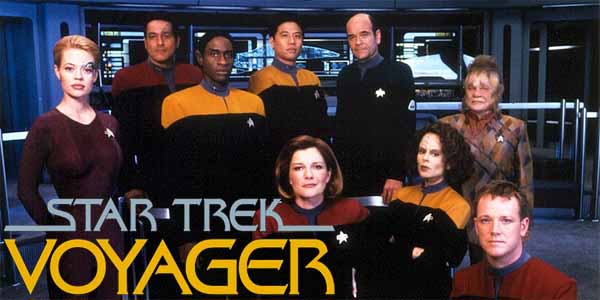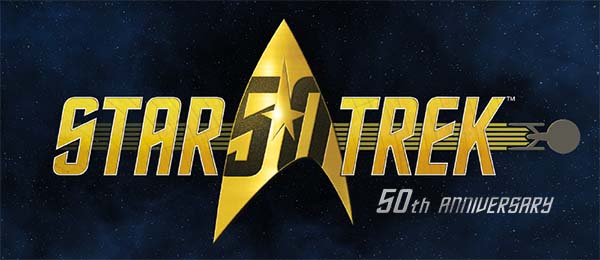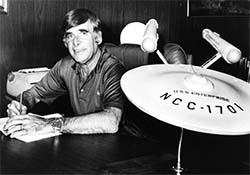
In my last post, I vented some of my frustrations with Star Trek: Voyager. Primarily, I ranted about how the series mostly failed to follow through with its central premise of being about the ship being lost and isolated on the other side of the galaxy. But I still have more complaints with Voyager. A side effect of the show not following its "lost and alone" premise to its logical conclusion, the show ended up feeling like it was trying too hard to be a Next Generation copy-cat.
Steve Shives also brought up this complaint in his Youtube video "What's My Problem With Voyager?", and I echo the criticism. Voyager had the frustrating habit of retelling stories that had already been told (usually better) in Next Generation. Star Trek shows have always repeated archetype characters, but TNG and Deep Space Nine were very good about paying homage to the earlier shows, without outright copying them.
Many characters feel like slight variations of characters from TOS and TNG.
For example, it could be argued that Data in TNG is a copy-cat of Spock. Dr. McCoy, after all, frequently referred to Spock as a "computer", and Mr. Data is [literally] a computer. But Data isn't a copy-cat of Spock. He's actually more a reflection of Spock (though, admittedly, Spock's arc in the movies and in "Unification" does paint him as being more similar to Data). Spock (in the Original Series) derided his humanity and fought very hard to subdue and quell it. Spock was like a Dr. Jekyll who thought his human half was the monstrous Mr. Hyde. Data, on the other hand, inverts this concept and is more of a Pinocchio (which Riker explicitly spells out for us in "Encounter At Farpoint").
Data wasn't a copy of Spock, he was an inverted reflection.
Also, Spock was dueling with his human half throughout the Original Series and into the movies. That's a dynamic that isn't present in Data at all. That dynamic is present, however, in Worf! Then, of course, there's the whiz kid element of Spock's character, which was transcribed onto Wesley in TNG. So TNG took inspiration from the Original Series' most popular character (Spock), but instead of copying him with minor variations, it split Spock's attributes into multiple characters.
[More]
2c5a81e1-f421-43b4-a73f-c4e9164e3c2a|0|.0
Tags:Star Trek, Star Trek: Voyager, U.S.S. Voyager, Star Trek: the Next Generation, Star Trek: Deep Space Nine, Delta Quadrant, Starfleet, Maquis, Kazon, Hirogen, Borg, Kathryn Janeway, Seven of Nine, The Doctor, Kes, Chakotay, Tuvok, Neelix, Tom Paris, B'Elanna Torres, Harry Kim, Borg Queen, Boothby, Reginald Barclay, Q, Data, Spock, Worf, Quark

On September 8, 1966, a cultural revolution started. The first episode of a new science fiction television series named Star Trek premiered on NBC. This series broke new ground in the genre of science fiction by being one of the first series ever to present high science fiction concepts to television audiences, while also using its space adventures as allegories for contemporary social and political issues. While it presented itself as mindless space adventure in the same vein as Buck Rogers and Flash Gordon, it took a serious approach to science fiction that (at the time) was limited to literature like the novels of H.G. Wells and the stories of Isaac Asimov.
Star Trek wasn't the first serious science fiction television series. Shows like The Twilight Zone and The Outer Limits had existed for a almost a decade. But Star Trek differed from these series in that it depicted a revolutionarily positive and uplifting version of the future of humanity during the height of the paranoia of the Cold War. Humanity, according to Star Trek would overcome the threat of mutual destruction that the Cold War between the United States and the Soviet Union posed, and we would come out the other side with a spirit of cooperation and a desire to peacefully and benevolently explore the stars, exploring strange new worlds and seeking out new life and new civilizations.
Television science fiction was dominated by childish adventures like Buck Rogers
and more cynical anthology series like The Twilight Zone that drew off of Cold War paranoia.
The show was created by Gene Roddenberry, a former United States army air force pilot and Los Angeles police officer who eventually found his calling as a television writer and producer. He wrote and produced some police dramas and westerns before pitching his defining project: Star Trek. The show was picked up by Desilu Productions, a company that was run by Lucille Ball (yes, the titular actress of I Love Lucy) and her husband. The production of Star Trek was tumultuous. The show was canceled by NBC after its second season, only to be revived due to an unprecedented, fervent letter-writing campaign staged by its fans. It did not survive its third season, however, as Desilu Productions was rapidly running out of money, was forced to cut budgets, and NBC moved the show to the dreaded Friday night "death" slot. In an age before DVRs, or even VCRs, if people were out on the town on a Friday night, and they missed an episode of a show, then that episode simply went unseen.

Gene Roddenberry's optimistic vision
of the future remains endearing.
The series eventually saw tremendous success after its cancellation due to its episodes being syndicated during the 1970's. It gained a cult following that grew and grew, setting up conventions that would come to draw thousands of attendees. Though not immediately apparent, Star Trek would grow to become one of (if not the) most successful science fiction properties in the world. The series is often cited by scientists, engineers, and astronauts as their inspirations for their careers, and the technology of the series has inspired many real-world technological innovations, such as wireless communication, mobile devices (in particularly mobile phones), speech-recognition software, and so on. Roddenberry became the first TV writer to receive a star on the Hollywood walk of fame, has been inducted into the Science Fiction Hall of Fame and the Academy of Television Arts & Sciences Hall of Fame, and was one of the first human beings ever to have his ashes carried into earth orbit... [More]
a36b33e8-1404-42b1-9723-a4759be0acee|2|5.0
Tags:Star Trek, Star Trek: the Next Generation, Star Trek: Deep Space Nine, Star Trek: Voyager, Star Trek: Enterprise, Star Trek: Discovery, Star Trek VI: the Undiscovered Country, Star Trek: Beyond, birthday, anniversary, science fiction, allegory, humanism, humanist, Gene Roddenberry, NBC, CBS, Fox, Paramount, Desilu Production, Lucille Ball, Cold War, Balance of Terror, The Measure of a Man, Kirk, Spock, Data, Gul Dukat, Seven of Nine, Star Trek the Experience, Las Vegas, Wallace Shawn, Grand Nagus Zek
|

| 12 | | | | | | | 60 | | 11 | | | | | | | 55 | | 10 | | | | | | | 50 | | 09 | | | | | | | 45 | | 08 | | | | | | | 40 | | 07 | | | | | | | 35 | | 06 | | | | | | | 30 | | 05 | | | | | | | 25 | | 04 | | | | | | | 20 | | 03 | | | | | | | 15 | | 02 | | | | | | | 10 | | 01 | | | | | | | 05 |
|